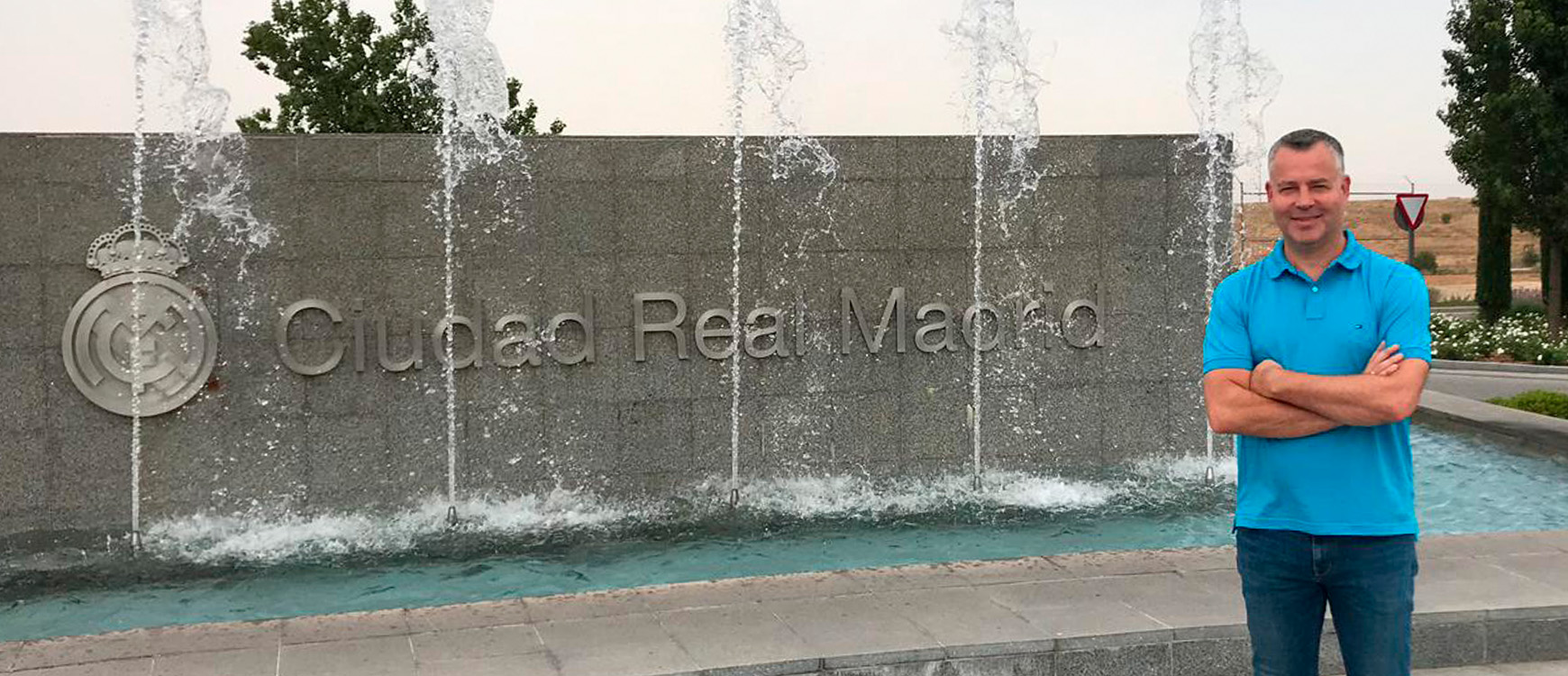
How to develop a culture
Every year in May and June we host the Mentorship (Level 1), the Expert Meeting (Level 2) and ProCourse (Level 3) at some of the biggest clubs in Europe allowing delegates to experience coaching at the highest level. Next year, the 2020 ProCourse will take place at Real Madrid. The central theme will be ‘How to develop a culture’. In other words, how can you develop a group of people who are unconditionally and unselfishly willing to work together with you towards the same goals?
Personal evolution
During our FCE courses we first of all pay attention to the behaviour of the delegates themselves. Are they good role models? Do they practice what they preach? Most coaches have high expectations from their players every day. Players should always be in time, they should train at 100% every sessions, etc. But when these same coaches participate in a coaching course they often do whatever they want. They arrive too late because of some excuse, they play with their phone during presentations, they leave the course early for whatever reason. Coaches with such ‘double standards’ will have absolutely no chance to develop a culture as described above. Being a role model is criteria number one. This means that a coach first of all has to evolve on a personal level. He must become aware of all his unconscious patterns and habits to understand and manage his unintentional and non-verbal communication with his surrounding.
Football coach evolution
On top of the personal development of the coach, he or she has to develop football knowledge to evolve as a football coach. This so-called football coach evolution is based on objective football references which
Are you IN or OUT?
Most coaches experience their first FCE course as a breath of fresh air. They are often blown away by the objectivity and simplicity of the football references being presented. So, after the course they often cannot wait to go home and to apply their new football knowledge. However, their first day back at their club is often as if they hit a wall as they are surrounded by coaches who did not experience the course. After returning home the coaches feel the ‘social pressure’ by their colleagues to keep doing what everybody is already doing for years. This situation leaves the coach with two options. He either sticks to his new knowledge and as a result his colleagues will isolate him from the group. Or the coach wants to stay a member of the group so he decides to lower his bar again and lets the course information go. In both scenario’s the coach ends up in a losing situation.
Surround yourself with the right people
As I have heard stories like this for years now on all continents, I decided it was time to develop tools and a strategy for coaches so they will no longer get frustrated by the situation at their clubs. The solution is that coaches start to develop a more positive and constructive environment back home with colleagues who are also fed up with the status quo and who want to raise their bar. Even if you find yourself just one colleague who is on the same wavelength as you, you have already found yourself a culture. The next step would be to get from two to three and four coaches with the same high standards. During the 2020 events in May and June we will go into more detail on how to further develop a process like this.


